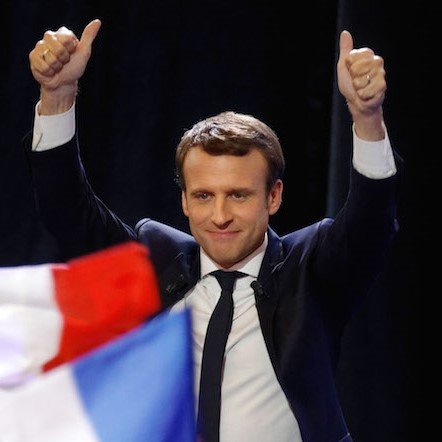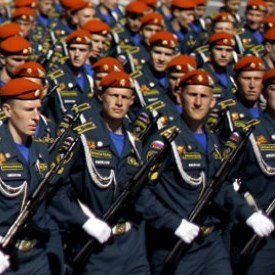France concluded a highly divisive presidential election campaign. Emmanuel Macron (En Marche!) won 66% of the vote against Marine Le Pen (National Front). The campaign will be seen by historians as having expelled in the first round the traditional parties (Les Républicains, Socialist Party).
The left-right divide, which is so deeply rooted in French history, became a secondary issue compared to a choice between a centrist, pro-European, and liberal position, and a nativist narrative focusing on anti-European and anti-immigration arguments.
The campaign was marked by a debate about the alleged influence of Russia. Le Pen, who has always been the darling of Russian media (and especially of Russia Today), was received on several occasions by senior Russian officials such as Sergei Naryshkin, then Chairman of the State Duma, and then by President Putin himself in March. An endorsement by a foreign leader is not an issue per se. Barack Obama made a small video clip expressing his support for Macron.
The Russian funds given to the National Front through the First Czech Russian Bank in 2014 did not develop into larger financial support. The emergence of Les Républicains candidate Francois Fillon, known for his pro-Russian stance, created new competition for the National Front in getting Moscow’s attention. It was a reminder that many among Les Républicains hope for improving relations with Moscow, both because of tight economic links with Russia, but also because they believe in a kind of Gaullist alliance with Russia and support Moscow’s vision of stability in the Middle-East.
Claims that Russia was interfering in the French political campaign were a repetition of U.S. hysteria on that topic. But just because the Russian media showed preference for Le Pen against Macron does not mean they had any solid way to influence the voters. Yesterdays’ results show that Le Pen, even with 10 million voters behind her, failed to rally the broader majority.
The massive leak of thousands of hacked documents from Macron’s campaign (released on Friday) also did not end up having influence. Cybersecurity pundits said the hack came from Russia-affiliated groups. While this remains to be confirmed, we now see that the leak did not play a role. Contrary to the “Russian threat” narrative spread by some experts during the campaign, Moscow was not able to lead discussions to shape the national political debate. It is thus time to deflate the supersized narrative about Russia’s influence stemming from “Kremlin meddling.”
What will be the new French president’s policy toward Russia? It is too early to say. New in politics and without a structured political party, Macron’s policy will be built depending on his forthcoming government. Macron will seek to build a presidential majority along with members of the Socialist Party, the centrists, and Les Républicains, which leaves the door open for adjustments both in terms of domestic and foreign policy.
We do know that Macron has always displayed a resolute pro-European and pro-NATO stance. Trying to relaunch the European project and work closely with Germany will be one of his main goals. He will probably not show any specific inclination to soften France’s relationship with Russia, but he will have to adapt depending on Russia’s actions in the Syrian theater, the potential spillover effects of which may impact Europe far more than the Ukrainian conflict.











